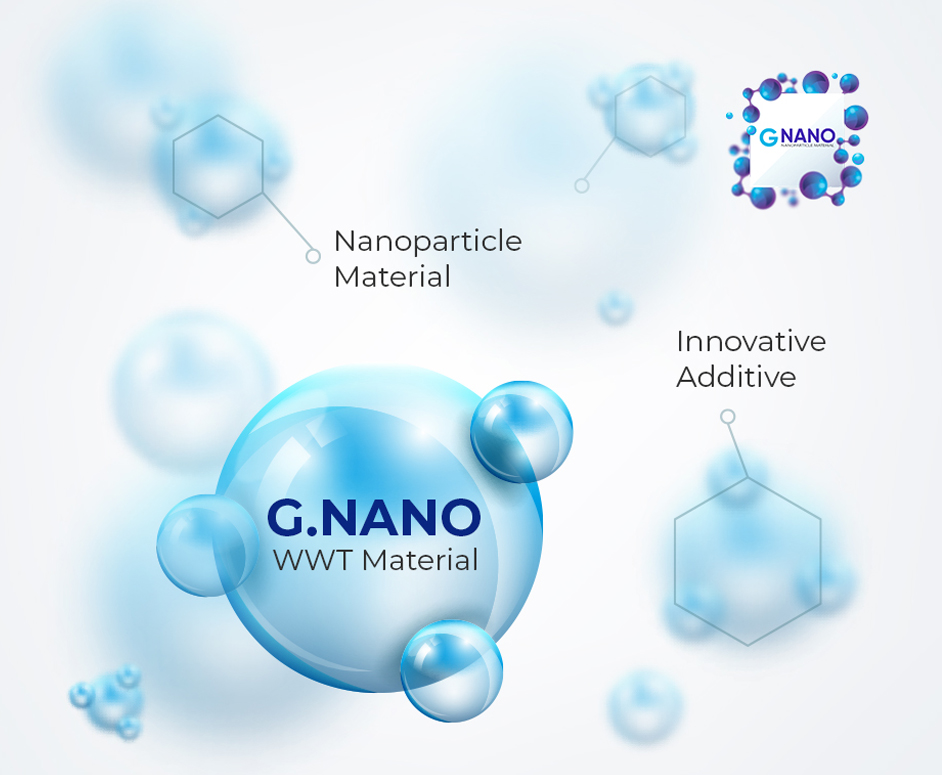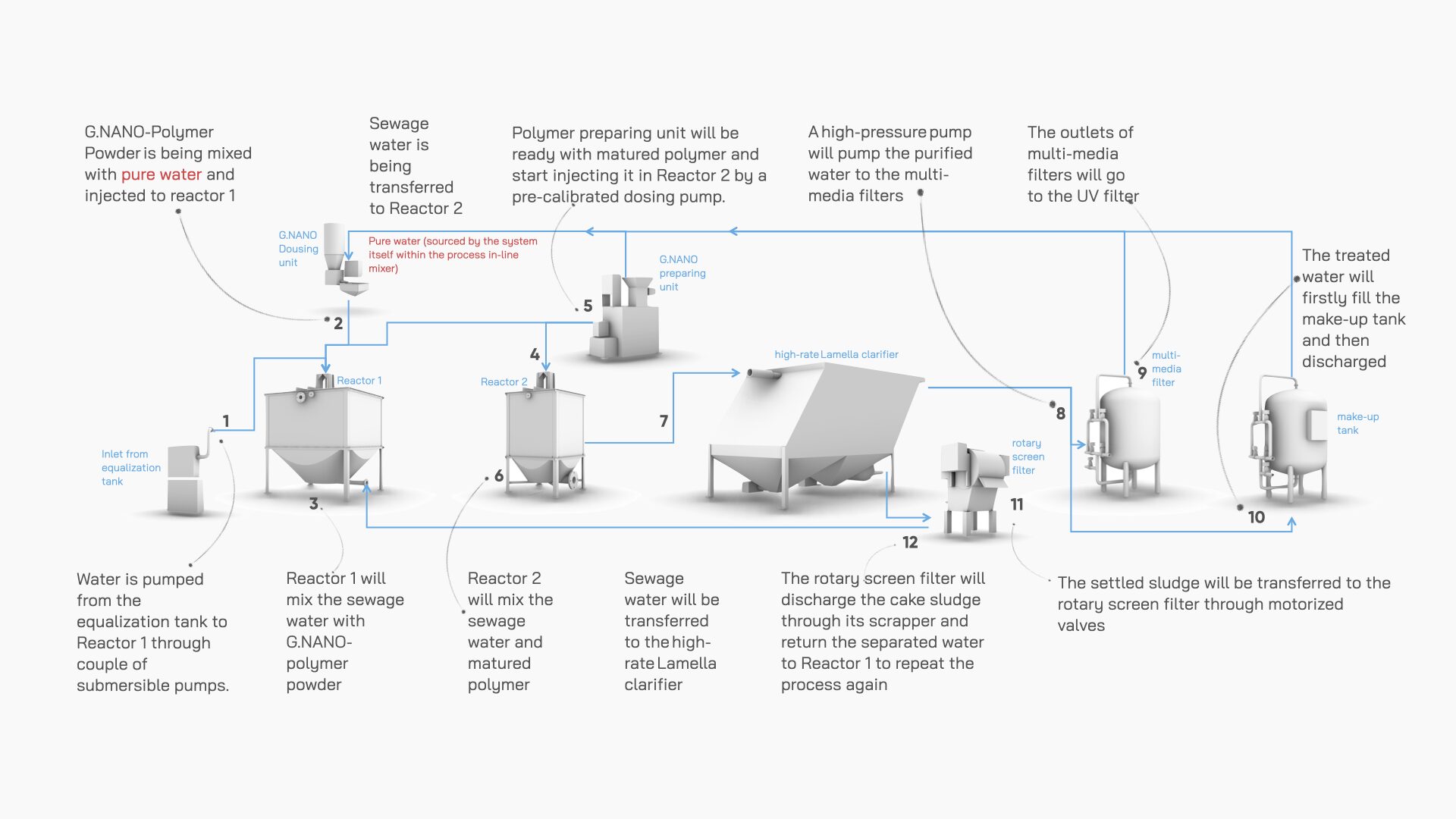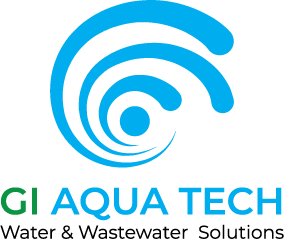WWT Material
G.NANO
Wastewater treatment is a complex process that involves the removal of various types of pollutants from wastewater before it can be safely discharged into natural water sources or reused. Traditional wastewater treatment methods include physical, chemical, and biological processes, but these methods have many limitations in serving the wastewater treatment market needs.
GI AQUA TCH GmbH has explored nanotechnology in wastewater treatment as a potential solution to overcome these limitations. In G.NANO technology development, we succeeded in transferring this technology into commercial solutions.
G.NANO Mechanism

Nanoscale materials offer several advantages in wastewater treatment due to their unique properties, such as high surface area, reactivity, and adsorption capabilities. As a result, the materials utilized in this technology can effectively reduce pollutants in various types of wastewater, including industrial and municipal wastewater.
Important notes:
- Raw materials of G-Nano technology are available worldwide, and it does not include any rare materials.
- It produces high-quality treated wastewater and non-hazardous sludge.
System
Mechanical
Using a mechanical system to apply nanoscale materials in wastewater treatment has several advantages. The system is designed to ensure proper mixing and distribution of the nanoscale materials throughout the wastewater, allowing for more effective absorption and removal of pollutants. The mechanical system also includes sensors for real-time monitoring of the process, allowing for adjustments to be made as needed for optimal performance.
Our mechanical system is unique for G-Nano Technology. Each device was designed/optimized specially to optimize its efficiency with our material. The outer shape is the standard for most of the equipment. However, the effective internal parts were redesigned to maximize productivity.

System
Control
We provide a wide range of control levels according to customer requirements.
- Semi-Automatic control system: reliable and straightforward. Still, it requires human supervision to ensure that the process is taking place as designed and to make quality control for outlet water.
- Full-Automatic control system: This will do everything automatically except for quality control. You can remotely monitor and control this system.
- Professional control system: this system will automatically adjust the operation point to match the required outlet quality without human interference.
